Publications
Articles, publications, books, tools and multimedia features from the U.S. Institute of Peace provide the latest news, analysis, research findings, practitioner guides and reports, all related to the conflict zones and issues that are at the center of the Institute’s work to prevent and reduce violent conflict.
Question And Answer
Amid a Changing Global Order, NATO Looks East
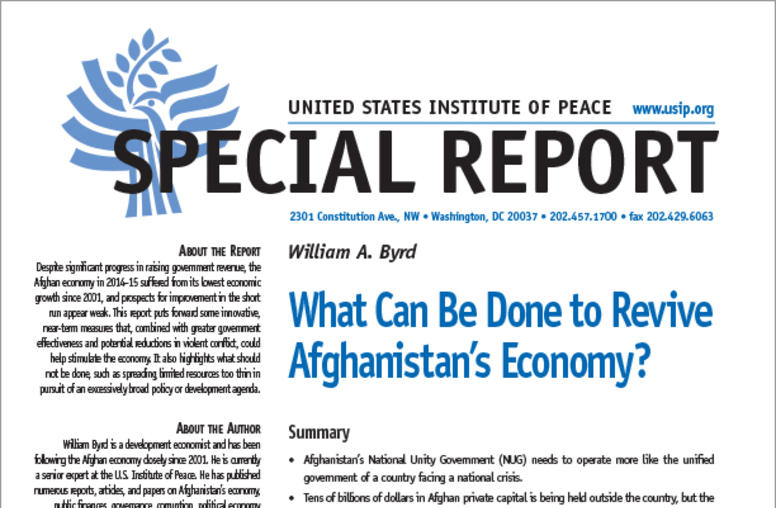
What Can Be Done to Revive Afghanistan’s Economy?
Reviving the Afghan economy during a time of intensifying violent conflict, declining external financial aid, and ongoing political uncertainty and dysfunction will be extremely challenging. But the country cannot wait for these entrenched problems to be addressed. While keeping expectations modest, this report proposes some targeted, near-term measures to increase confidence and stimulate the economy. Rather than engaging in politics as usual and following conventional policy prescriptions t...
Urgent Imperative: Get Afghanistan’s Government Working
Ten weeks after the Taliban briefly captured Kunduz, Afghanistan’s fifth-largest city, neither the fractured government nor the country’s political class is showing signs of heeding that wake-up call—or the other flashing warnings that the 14-month-old government is close to failure. While the United States quickly announced the reversal of its planned withdrawal of forces from the country, the factions in Kabul must figure out how to cooperate in governing, and Washington must do all it can to advance that, analysts say.
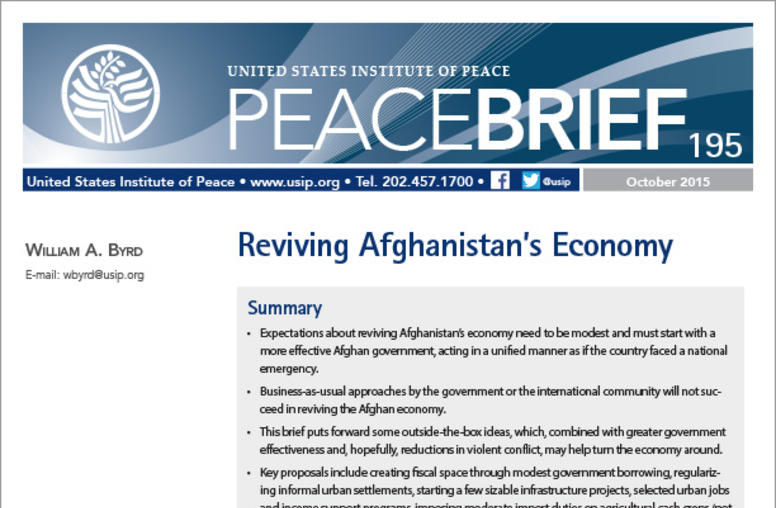
Reviving Afghanistan's Economy
Some say reviving the Afghan economy in a time of intensifying violent conflict and declining external financial inflows will be impossible. Expectations need to be kept modest, and measures must go beyond conventional economic approaches in order to be effective. This brief puts forward some outside-the-box ideas, which, combined with greater government effectiveness and, hopefully, reductions in violent conflict, may help turn the economy around.

To Help Afghanistan Survive, Narrow the Focus
Afghanistan’s Taliban are trying to defeat the government in this first year following the U.S. military’s withdrawal from combat operations, and their surge in attacks has driven the rate of army and police casualties at least 65 percent higher than last year. Still, a focused strategy can help the government survive, USIP experts say.
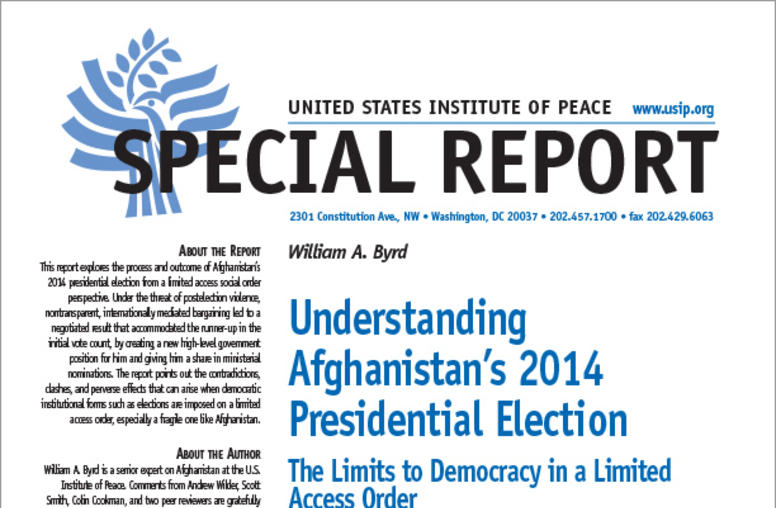
Understanding Afghanistan's 2014 Presidential Election
Afghanistan’s 2014 presidential election did lead to its first peaceful transfer of power. The process, however, was scarcely democratic. This report explores the election and its internationally mediated unity government outcome. Elections—when they can even be held in fragile and conflict-affected situations—tend to be more destabilizing than stabilizing. The overall lesson, as this report makes clear, points to certain critical needs for such countries: a better understanding of inherent i...
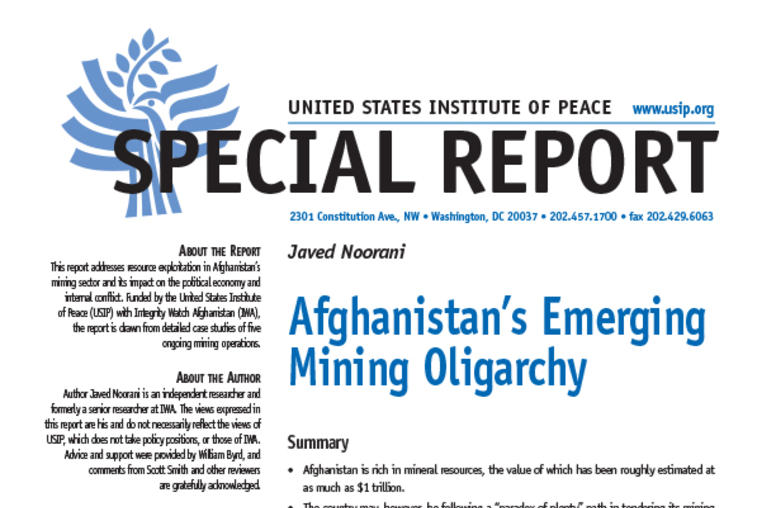
Afghanistan’s Emerging Mining Oligarchy
Rich in natural resources—ferrous and nonferrous metals and strategic minerals in particular—Afghanistan faces a dual threat as international troops withdraw and international aid declines. On the one hand are inadequate government revenues. On the other is the resource curse that affects so many low-income countries. This report, drawn from case studies of five ongoing Afghan mining operations, addresses resource exploitation, its impact on the political economy and internal conflict, and po...
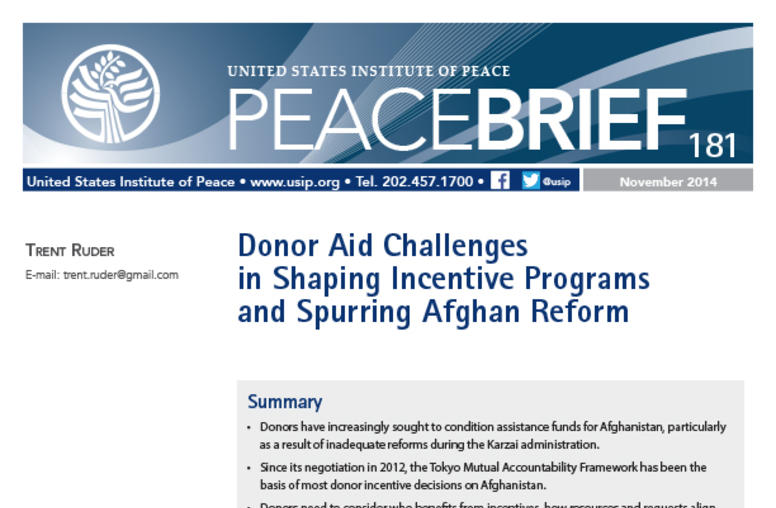
How to Spur Afghan Reforms: The Limits and Benefits of Incentives
Although not a magic bullet, incentive programming can help shape dialogue with the new Afghan administration. What are incentive programs? How do issues such as stakeholder participation, Afghan capacity and consequences of success or failure affect policy decisions for incentive programs? In addressing these questions, this PeaceBrief points the way to more effective incentive programming.
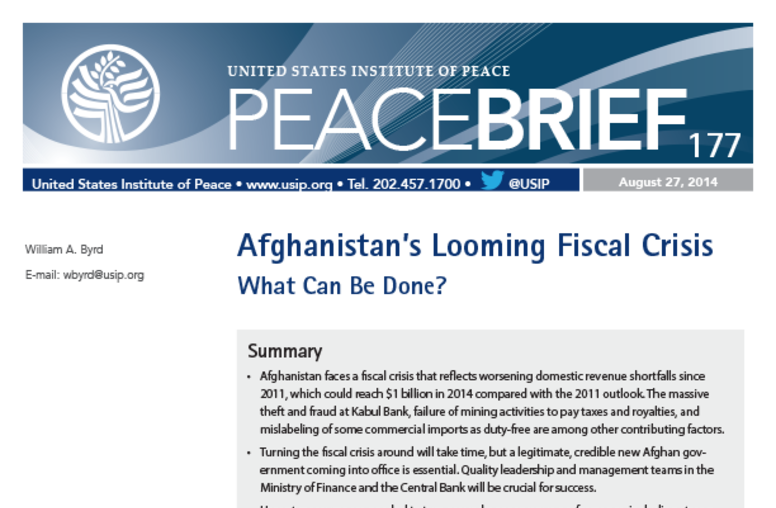
Afghanistan’s Looming Fiscal Crisis: What Can Be Done?
Afghanistan faces a fiscal crisis due in large part to worsening domestic revenue shortfalls. Averting this crisis will require strong leadership from the new Afghan government that will be replacing the Karzai administration. The country’s revenue system and collections need to be improved, corruption reduced, new revenue sources developed and expenditures cut. More international aid also is needed to help stabilize Afghanistan’s budget as the government undertakes these reforms.
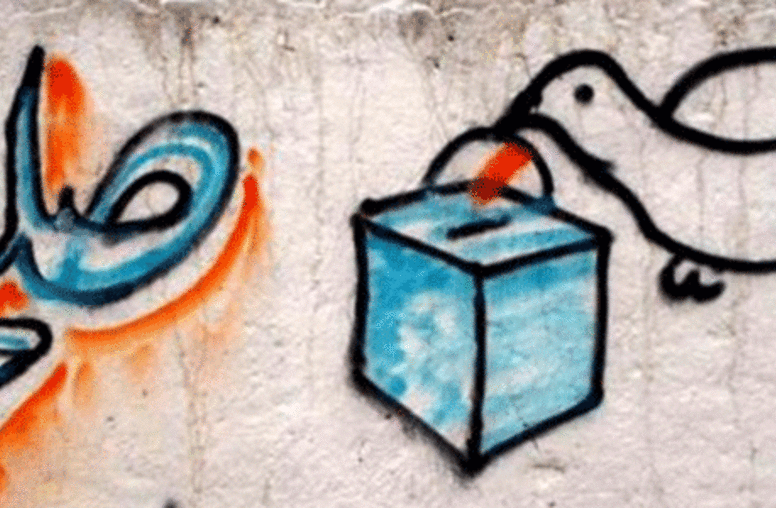
USIP & Afghanistan’s Political Transition
Since 2011, USIP has advocated that Afghanistan’s political transition, and the presidential election in particular, will be the most crucial factor in determining the country’s stability post-2014. USIP has conducted research, facilitated discussions, and raised awareness of this issue through publications, projects on the ground, events, and briefings for government officials on the importance of and need to support the political transition. Learn more on USIP’s Support for a Successful Afg...
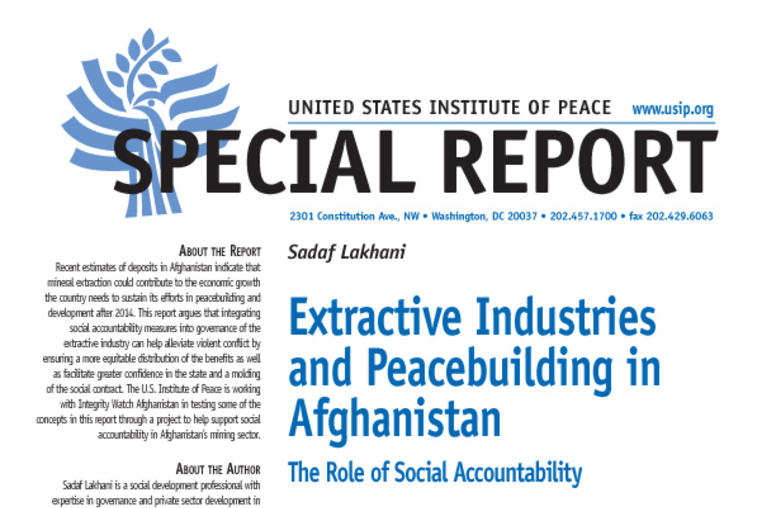
Extractive Industries and Peacebuilding in Afghanistan: The Role of Social Accountability
Mining operations in Afghanistan could be an important generator of economic growth for the country, but they also spark conflicts over environmental effects and perceptions that the economic benefits have been distributed unfairly. Local communities, the government, and mining companies would all benefit from mechanisms that focus on transparency and mediate grievances around these industries.